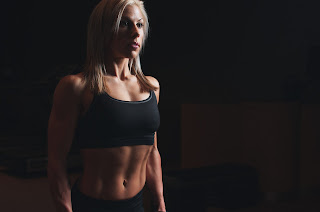Tips How to stay fit at every stage of life, If pounding the pavement isn’t quite right for you, there are plenty of more gentle alternatives.
Sure, we start to slow down as we mark a few birthday milestones, but it's possible to stay focused on the healthy path to age-appropriate fitness.
Exercise scientist Van Marinos says our fitness and capabilities have changed over the past few decades.
“There is a natural age-related decline in muscle mass and strength of around 3-8 per cent per decade after our 20s, along with accelerating declines in the performance and capacity of our cardiorespiratory system,” says Marinos, founder of Community Moves Health & Fitness.
Read More : Health Benefits Of Moringa Leaf Tea
This means that goals that we easily achieved in our 20s may not be achievable as we enter our 40s, and we should make some changes to stay on the right fitness path.
A simple test of an able-bodied person's cardiorespiratory fitness is the time it takes to run 1.5 miles. Expected standards are slightly different for men and women.
“For women in their 20s, a time of 14 minutes is good,” Marinos says. “For each decade, simply add another minute, so in your 30s it’s 15 minutes, 40s is 16 minutes.”
TIME-POOR PARENTS
However, fitness and self-care can often be some of the first things to disappear when people become parents.
The This Girl Can campaign in the UK found 60 per cent of English mums felt guilty taking time out to exercise rather than spending time with their family.
The House of Wellness TV co-host Jacqui Felgate says she has felt guilty in the past about taking time away from her two daughters to exercise.
“I love running,” Felgate says. “It’s my favourite sport and one I used to do six days a week. Nowadays, though, I’m just so busy and tired I’m lucky if I run once a week. My goal this year is to get back into running and leave the guilt behind.”
She believes to truly thrive and feel “well” within her body and mind she has to exercise.
“Yep, I still feel guilty,” Felgate says. “I still feel like I haven’t nailed the balance in my life. But running is almost a cathartic experience. And in the long run, we’re helping not just our own mental and physical health but that of our kids.”
SLOW AND STEADY
If pounding the pavement isn’t quite right for you, there are plenty of more gentle alternatives.
Therapy Fitness director and health coach Emma Masters says slower-paced workouts such as yoga and pilates can be beneficial at any stage of life.
“The physical benefits are of increased flexibility and mobility, improved posture, improved circulation, increased strength and, in higher energy-based yoga classes, cardiovascular improvements,” Masters says.
“The mental benefits that come from yoga being such a strong mindfulness practice are stress reduction, decreased anxiety, mental resilience and overall calmness.”
REKINDLE THE SPARK
Often, finding the right fitness routine as we get older comes down to reigniting that passion we experienced as children.
As we age, we often give up some of the sporting passions we enjoyed in our youth.
A Suncorp Australian Youth & Confidence Research study in 2019 found nearly 50 per cent of Australian girls turn their back on sport by age 17.
This is despite the fact 65 per cent of girls aged 11-17 agree that playing sport makes them feel great about themselves.
If it has been a while since you last exercised, University of Sydney lecturer in the School of Health Sciences Dr Kotryna Fraser suggests finding a fitness routine that sparks joy is the key to picking up the habit again.
It’s about trying different activities and testing what works for you.
“If it brings you happiness and joy, it means we are more likely to maintain that activity and maintain a more active lifestyle,” Dr Fraser says.
She suggests adding some music to your workout to boost your endorphins, or consider exercising with a friend who is also at the same fitness level.



Post A Comment:
0 comments so far,add yours
Posting Komentar